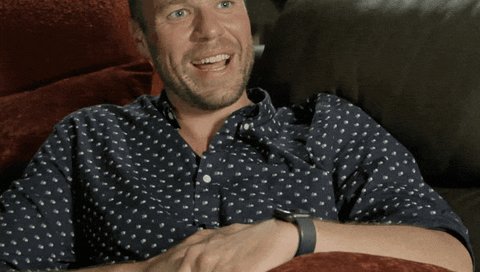Love is Blind, and so is the cast
Losing the plot of the love story when we're soaked in desperation for marriage
Two seasons ago, I told myself I wasn’t going to watch reality dating shows anymore. The drama was affecting my mental health, making me rage at the contestants’ behaviour–no matter how predictable, their self-destruction mirrored back to me too many mistakes I'd made in my own dating life. I told myself I was beyond this, that through my own personal growth I had achieved (enough) emotional stability to know what I was looking for in my own relationships, and it wasn’t anything being portrayed on screen.
Or so I thought.
Out of protest, I refused to watch the last season of Love Is Blind, the Netflix show hosted (problematically) by Nick and Vanessa Lachey—their marriage not so subtly implied to be what every straight person longs for. I was proud of myself for the restraint I’d shown in avoiding an entire season of marital-seeking desperation, but when a new season presented itself in my queue this fall, I couldn’t help but hit play.
The show, for those who have never watched, starts out with contestants meeting in the “pods” but are separated by iridescent screen-like windows that prevent them from ever seeing each other. The “experiment”, if you haven’t already guessed, is to see if you can fall in love with a person without ever seeing them. Fall in love with a stranger on the other side of a hologram, and, naturally, propose to them, and you are finally granted the opportunity to meet them face-to-face. These reveals are, quite possibly, the cringiest part of the show. The contestants believe they’ve fallen in love (maybe they have) and the reactions are written all over their faces and in their body language as they approach each other for the first time, all dolled up, the men with a proper engagement ring, shaking, asking this woman they’ve literally just seen for the first time if they will marry them. They’ve only just met days prior.
Select couples are then chosen by the show’s producers to head on a trip to Mexico, where they spend secluded time together at a resort before going back to their real lives. The couples exist in an encapsulated bubble where the only people they really see are hotel staff, perhaps some other guests, and the other cast members. Some couples end things here, realizing there isn’t any attraction or functionality to their relationship, while others move on to the next phase, moving in with each other back in their hometowns.
At this point, the bubble begins a slow leak. The reality of daily life and its responsibilities, jobs, making dinner, cleaning the house, scheduling visits with friends, all creep in, taking up precious time the couples had once devoted to just each other. The allure of living together is a big milestone checked off for some couples—look how far we’ve made it, as if it’s been years rather than weeks since they first got together. The wedding planning, parent-meeting and approvals from friends are also piled on during these weeks. Couples break down, question their relationship, what they’re even doing as individuals, and—dun dun dun—whether they’re ready to get married at all.
The show’s timeline needs highlighting—the whole experiment taking place over the course of six consecutive weeks. From meeting a person in a pod to standing at the altar, these people are expected to fall in love and hit several major relationship milestones within weeks, the ultimate goal of marriage looming in the not so distant future.
Having seen several seasons of this show—now in its 7th season—I’ve witnessed most couples fall apart at some point. Only a few have ever made their relationship work in the long run (I’m not talking about the ones who announce their divorce a year after the show wraps). Watching it this time, I found myself feeling less enraged by the couples and more curious about their absolute desperation to be married. Part of it is the production of the show, the clips producers choose to show us—and those they leave out—but it’s impossible to ignore how the contestants so adamantly say, over and over, how ready they are to be married. It’s not just a relationship they’re looking for. It’s their best friend, their partner, their husband, their wife. They want to be married. The underlying tone is that if they walk out of there without getting hitched, they’ve failed. Not just in love, but in life.




